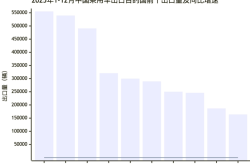TSMC's 2-Nanometer Technology Secrets Potentially Leaked to Japanese Companies
![]() 08/07 2025
08/07 2025
![]() 463
463
TSMC is facing a significant challenge. Their cutting-edge 2-nanometer chip technology has reportedly been compromised, with suspicion pointing towards a Japanese company as the recipient.
According to Taiwanese media, this incident impacted TSMC's R&D center and the Fab20 plant in Hsinchu's Baoshan. A total of nine TSMC engineers were implicated. Among these, three were directly involved in the 2-nanometer trial production process, while the remaining six provided essential R&D support.
During routine monitoring, TSMC's information security team detected suspicious network activities. Certain employees violated company policies by accessing the internal R&D system remotely, utilizing mobile phones or other external devices to clandestinely obtain and transmit confidential information.
Upon discovering these breaches, TSMC swiftly terminated the employment of those found to have committed serious violations and referred the matter to the courts.
Rumors suggest that the leaked data may have ended up in the hands of Tokyo Electron Limited, a prominent Japanese company.
Tokyo Electron Limited is no small player; it ranks fourth among global semiconductor equipment suppliers and holds a significant stake in Japan's "chip national team," Rapidus.
Interestingly, on July 18, Rapidus announced the successful trial production of 2-nanometer chips, a development that stunned the industry. Now, there are speculations that Rapidus's progress could be linked to this TSMC secret leak incident.
Some may wonder about the significance of 2-nanometer chips. In essence, these chips represent the pinnacle of current semiconductor technology and hold potential applications in future smartphones, AI accelerators, and other advanced devices. TSMC had initially planned to commence mass production in the second half of this year, making this a crucial endeavor for their future. Globally, only a handful of companies, including TSMC, Samsung, Intel, and Japan's Rapidus, are engaged in 2-nanometer technology research. The leak of this technology could potentially alter the competitive landscape of the global chip industry.
The prosecution department in Taiwan is actively investigating this case. Under local regulations, chip manufacturing technologies below 14 nanometers are classified as core and critical technologies. The theft of such secrets is subject to rigorous investigation by the prosecution department and carries severe criminal penalties, including a maximum sentence of 12 years in prison and a fine of NT$100 million.
Currently, the investigation into this matter is ongoing. TSMC has affirmed its commitment to fully cooperating with the judicial process to ensure a thorough examination of the situation.







